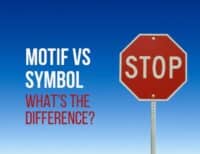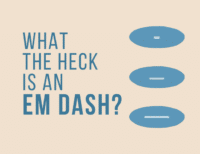I was talking to a friend the other night, and somewhere in the conversation we started making guesses about where the rest of our crew was at that point in the night. I started to say, “I assume…” but then I stopped myself and had a second guess moment. “Assume? Presume? Which one is it?” Obviously since we live in the age of smartphones and instant Google, I looked it up. Believe it or not, there is a slight difference, and I'm sharing it with you today.
Presume vs. Assume
Granted, the two words are basically used interchangeably in the modern English lexicon, so modern use implies that they mean the same thing. However, a little research indicates that they're used in slightly different contexts.
Looking at the definitions of the two words shows that assume means to “suppose to be the case, without proof,” and presume means to “suppose that something is the case on the basis of probability”.
When you assume something to be the case, you have no reason to believe what you are supposing: no prior experience, no knowledge of the situation. You're just going with your gut.
When you presume something, on the other hand, you use prior experience or the likelihood of something happening to draw a conclusion.
How Do Presume and Assume Actually Work?
For example, since I just watched The Hunger Games for the first time (the original, not the sequel) , I presumed that I would enjoy it. I had never seen the movie before (I know, I know, I'm way behind the times), but I have read the books, and I enjoyed them. Since I enjoyed the books, the presumption that I would enjoy the movie was an easy one to make.
However, I assume that the actors read the books before starting work on the film. I have no idea if Jennifer Lawrence actually read the trilogy before taking on the role of Katniss, although I'm sure a Google search could clear that up, but right now, that is a pure assumption, since I have no proof or knowledge that would lead me to think that would be the case.
In modern context, the difference between the two words is negligible, but if you're interested in being particular about the difference, now you can appropriately use the two words in the correct context.
PRACTICE
Write out your presumptions and assumptions regarding the upcoming Thanksgiving holiday. Which dishes do you presume you will eat? What do you assume you will talk about with your friends and family?
Spend fifteen minutes writing about your presumptions and assumptions. When you're finished, post your practice in the comments when you're done. Happy writing!








if you look at the difference between assumption and presumption it adds another angle – presumption implies ACTING on a belief rather than simply BELIEVING it
After you’ve been proved correct, then only will you believe it? LOL
Assuming is believing something to be true, being presumptious is acting in away because you believe something to be. In either case you could be proved tight…or wrong…. 🙂 possibly
Her: “Most of the plans are in place for our Thanksgiving meal now and I presume you fellows will occupy the living room after. We ladies are going to go downstairs and work on a jigsaw.”
Him: “Have you assumed responsibility for decorating the table this year?”
Her: “No, I’m just presuming Mom will make another ‘Autumn leaves’ centerpiece, but I’ll check with her. And I assume I can get the teen girls to help set the table.”
Him: “I presume your Aunt will be bringing her standard salad and your sister her ‘Sweet Potatoes Yum Deluxe’?”
Her: “And I presume your brother-in law Stan will be wearing that wacky-tacky Hawaiian shirt again. Sigh. He has to remind us every year about their fabulous vacation.”
Him: “Don’t make too many assumptions. He may not find any way to get here. Remember he lost his license after that Grey Cup bash-and-crash he was in last fall.”
Her: “Oh, right. Well, it’s a safe assumption Alana will be bringing her beau, so we’ll be 34 people; 35 if Stan makes it.”
Him: “And I presume we can ask your Dad to carve the turkey as usual?”
Her: “Yeah, He’d likely be seriously miffed if we didn’t.”
I was trying to write about Thanksgiving but the final practice deviated wildly, LOL:
When Jacey opened the door to her blind date, she assumed he’d have arms.
She was wrong.
While Don (she was so flabbergasted, she wasn’t even sure that was his name anymore) was freshly shaved, and his face was chiseled, and his teeth were perfect, where there were supposed to be arms there was, well, nothing.
Standing there, staring at the man wearing short sleeves (with what she could only assume were nubs underneath), trendy jeans, and a smile, the entire date raced thru Jacey’s mind.
She presumed they’d be going to dinner. In their emails, he’d mentioned an amazing Thai place and kept dropping hints. It sounded nice, but she suddenly pictured him with a plate of noodles. She assumed he wouldn’t be using chopsticks. But, even with silverware, how would he eat? Almost letting loose a single gobble of a laugh, she pictured a feedbag strapped to his mouth, then immediately felt guilty.
Her shame evaporated as she concocted what they’d do next. He talked about how active he was, and how he’d never take a woman to a movie. Maybe they were going on a hike. That wouldn’t be too bad. The thought only lasted an instant, though, as her pessimism suddenly placed them at a rock climbing wall. The thought was too much, and she lept forward in time, to when the date ended.
His face really was sexy and she assumed he’d lean in for a kiss. But she liked to have her hair stroked, and presumed there was no way he could do that. Unless he used his nubs, but that though made her ill.
Then they were in bed together. She would probably have to be on top. Otherwise, how could he prop himself up?
The next morning, she worried she’d have to make breakfast.
Jacey heard an awkward throat clear and snapped back to her doorstep.
The date over before it had begun, Jacey stared at Don (Dan? Danny?) then, smiling, said, “I had a wonderful time tonight.”
She shut the door before he could respond.
Your practice is well done and the use of words is good, but I sure don’t think much of your MC’s attitudes. 🙂
LOL Thanks 🙂
Legal statement: Characters and situations are made up and not representative of the writer’s own views 🙂
Actually, I find I frequently write really cynical characters, I’m not sure why.
If you’re presuming that we as wordsmiths are interested in this, you’d be absolutely corrrect. Thanks!
Love it! I assumed I would be able to expand to different forms of the words.
Our children presumably will be here this Friday afternoon, which is when we celebrate the holiday. Assumedly they will be here on time, so that we can begin to eat precisely at 1:00. We all will be sharing in the preparation of the meal, I presume, but as I know from experience, my presumptions may certainly be incorrect.
My husband and I entertain most of his family for the holidays, also. I presume that there will be nearly fifty in attendance, but the assumption that all will go according to plan leads to mere presumption on my part.
Presuming that the turkey comes out of the oven, brown, crisp, and juicy, leads me to assume that the family will indeed enjoy a memorial holiday at our home.
Have a blessed Thanksgiving!
I’d like to go off on a tangent here.
When the explorer Henry Morton Stanley met Dr Livingstone in a small village on the shore of Lake Tanganyika on November 10, 1871, he said, “Doctor Livingstone, I presume?”
I assume he’d heard the news of another white man through the drums.
I presume this is why the sain goes to assume something only makes an ass out of u and me
Digital Marketing Company